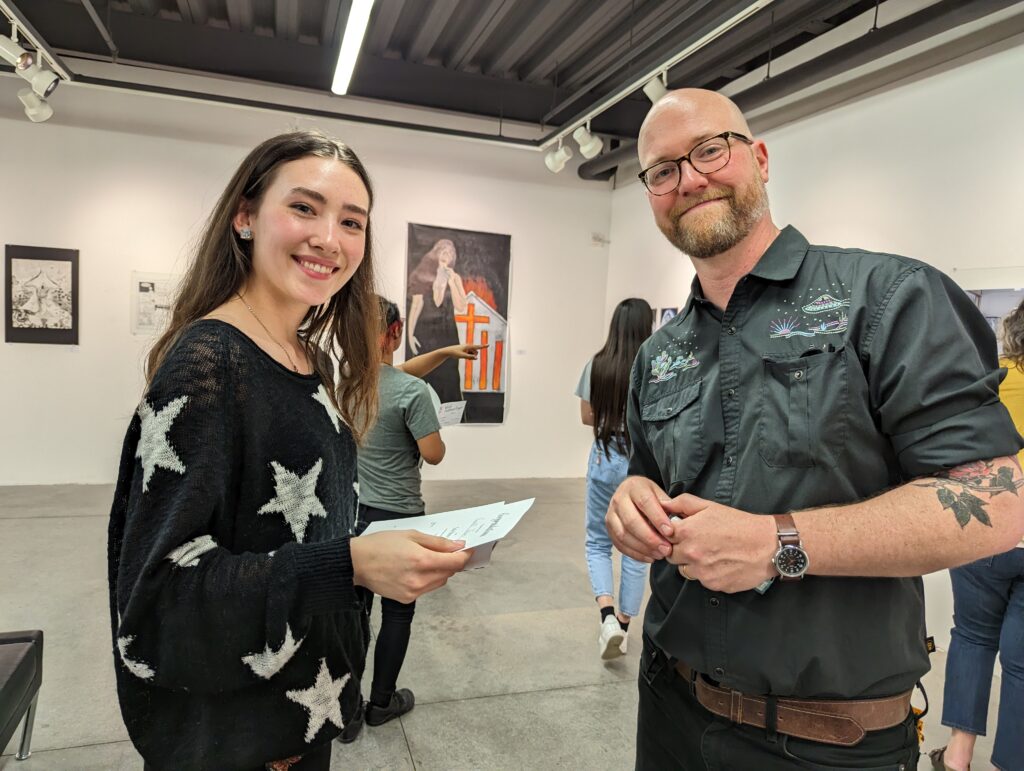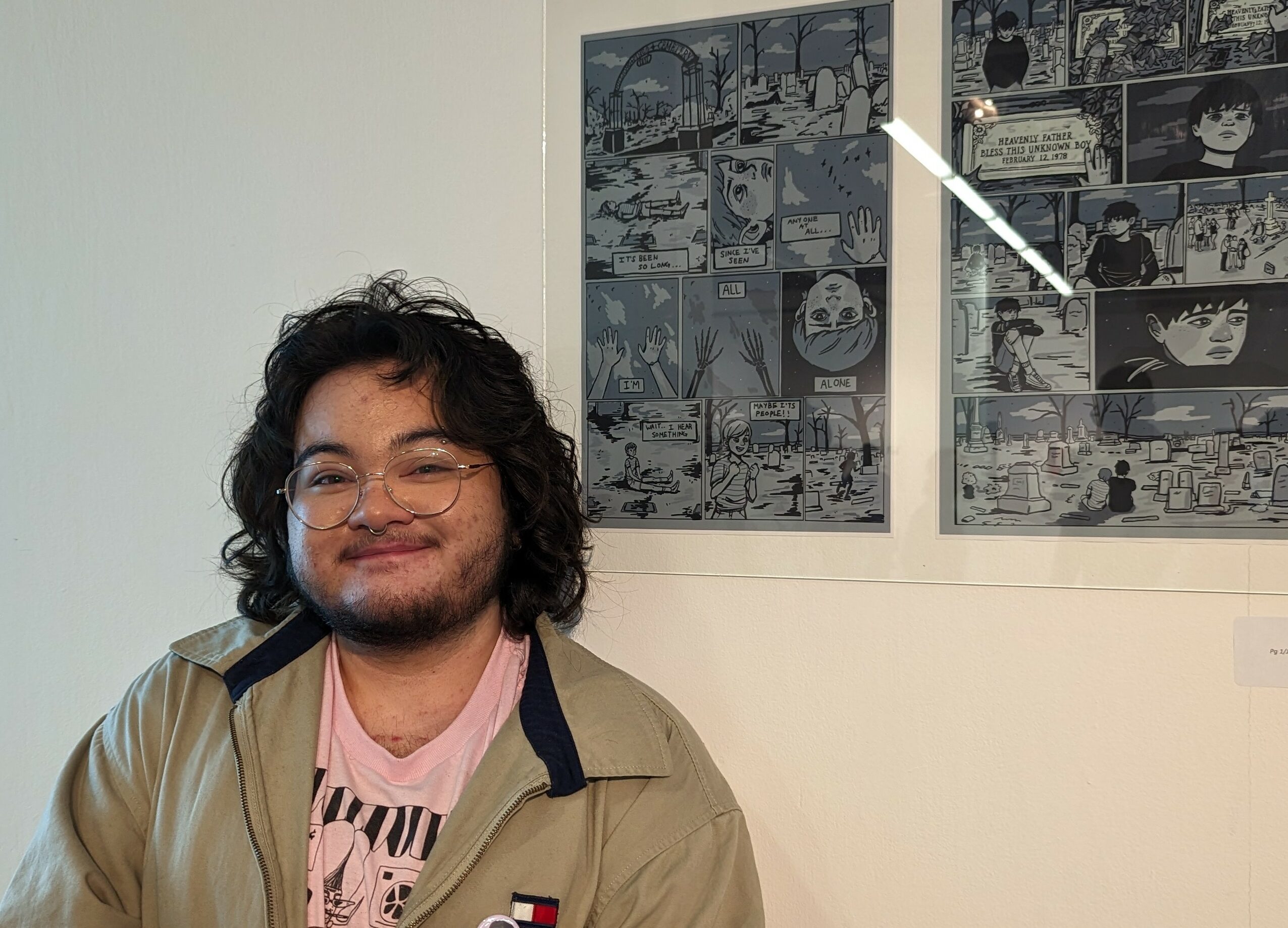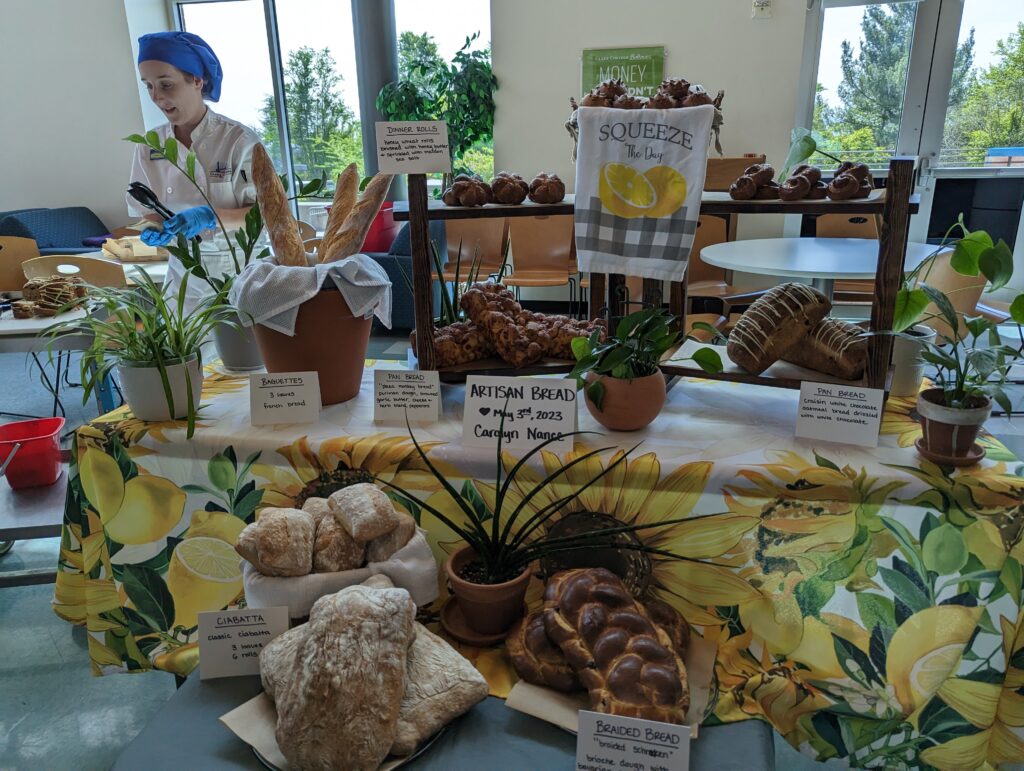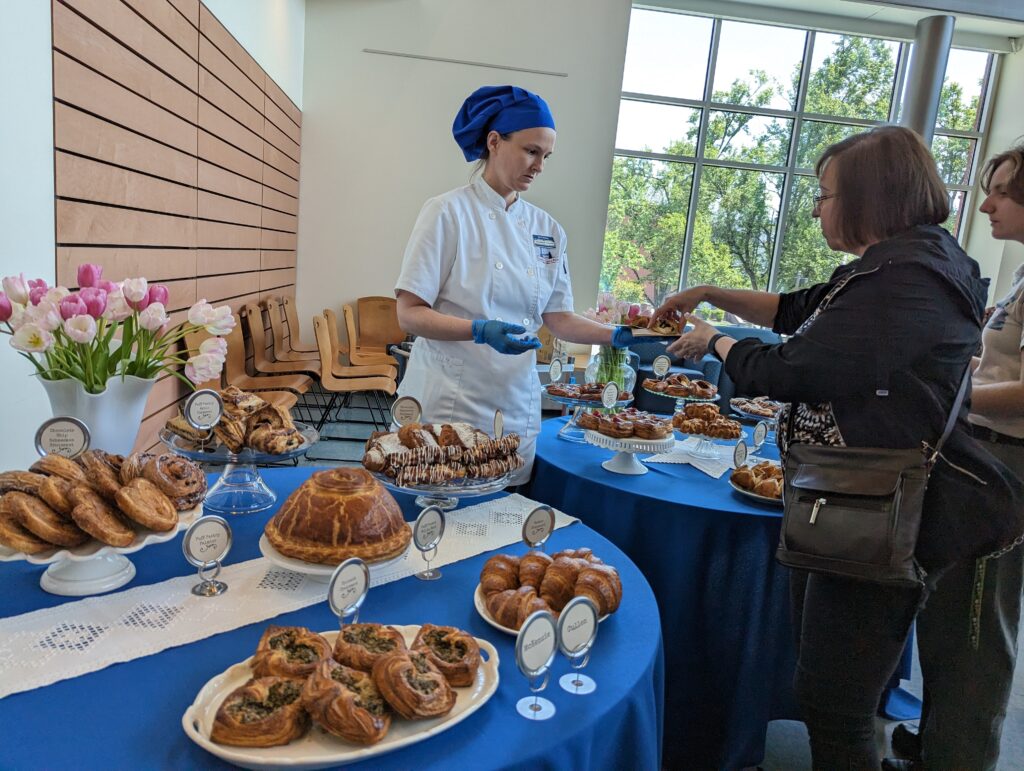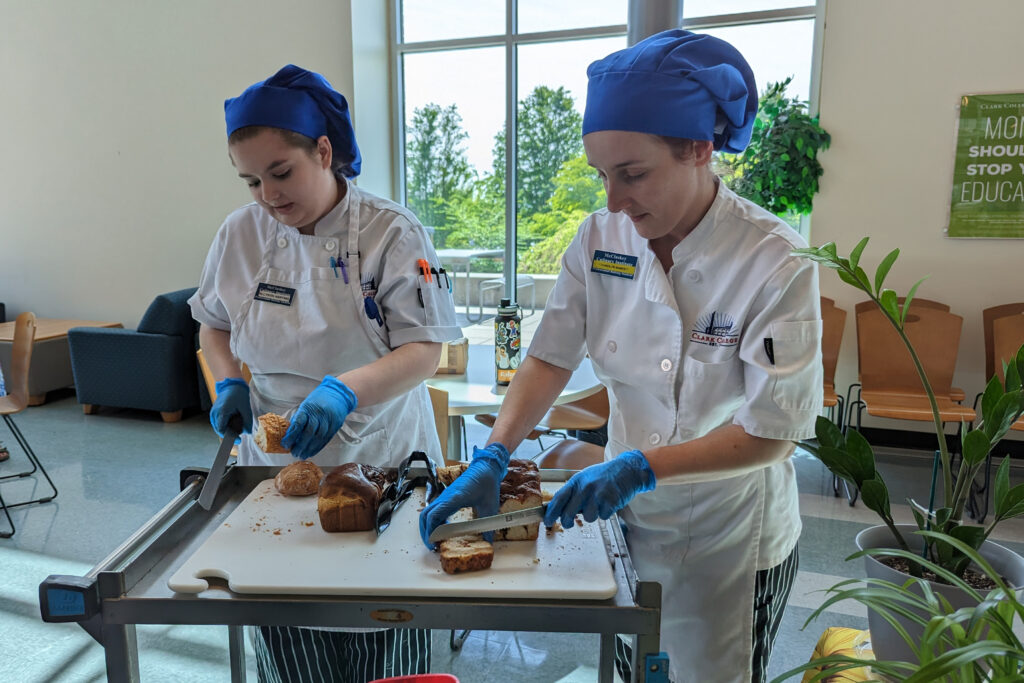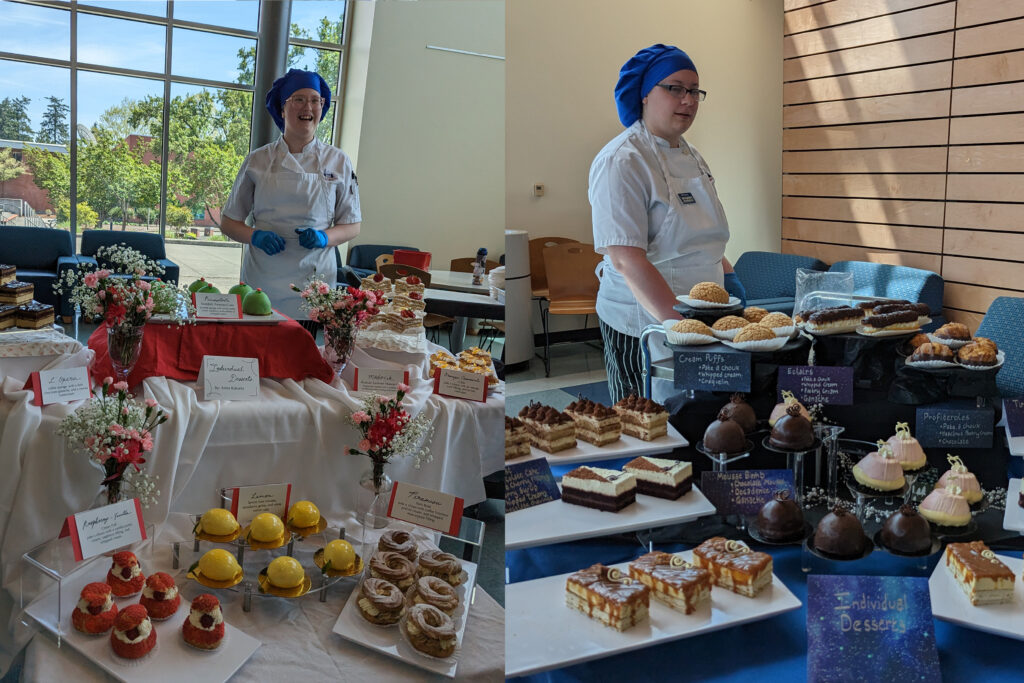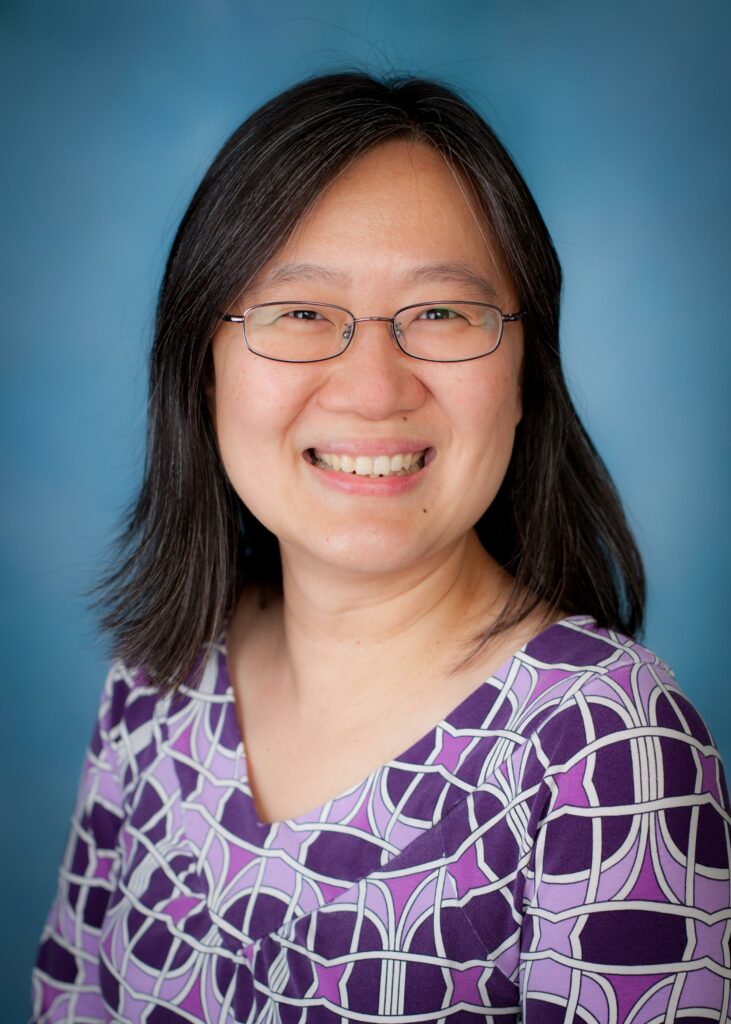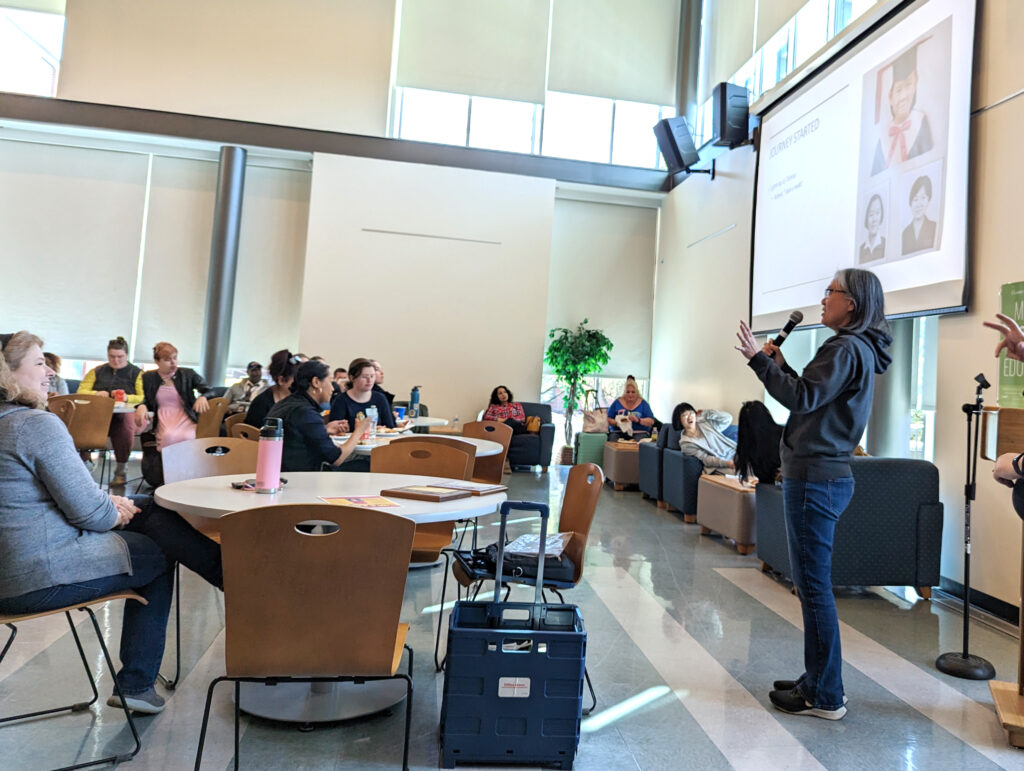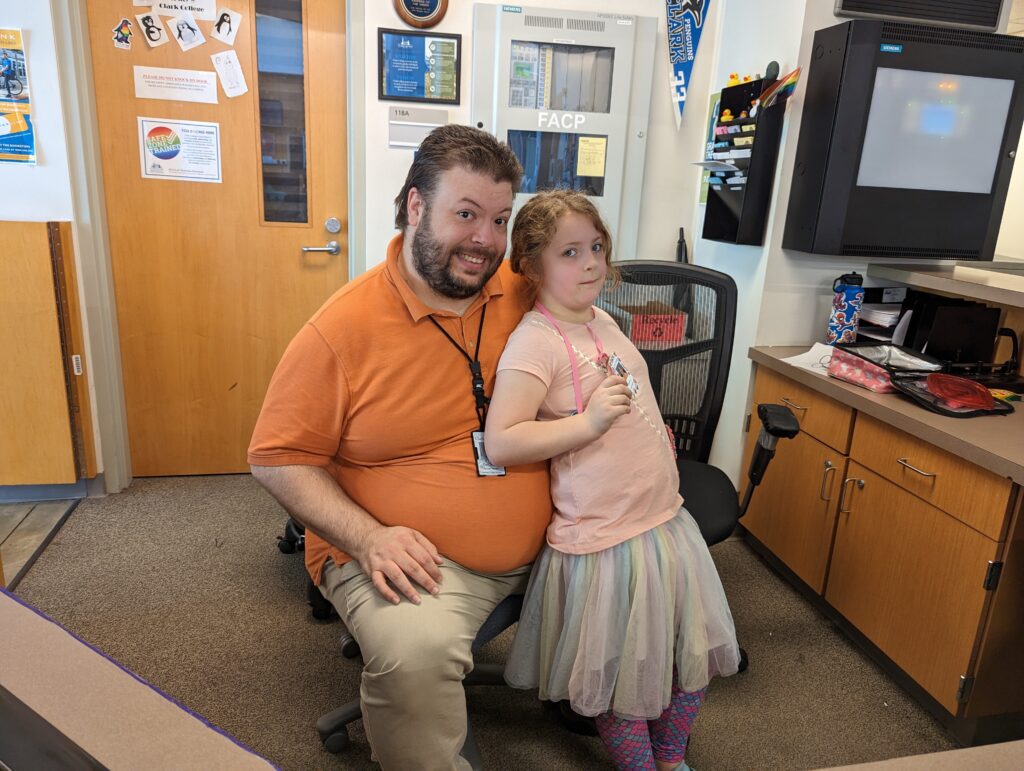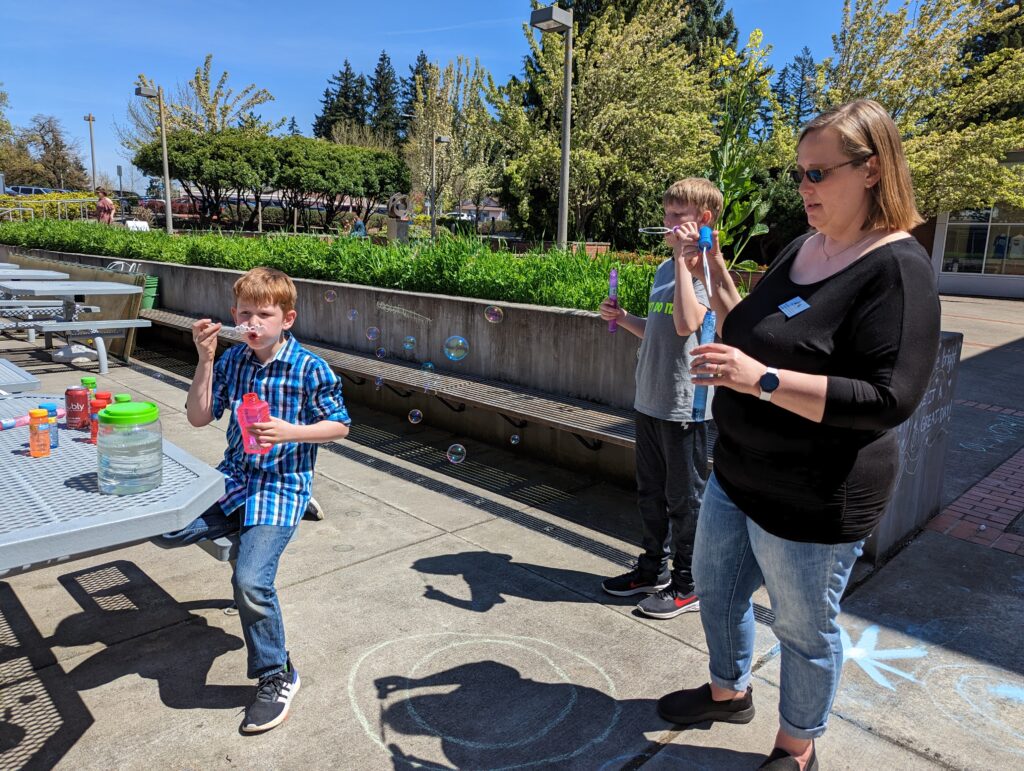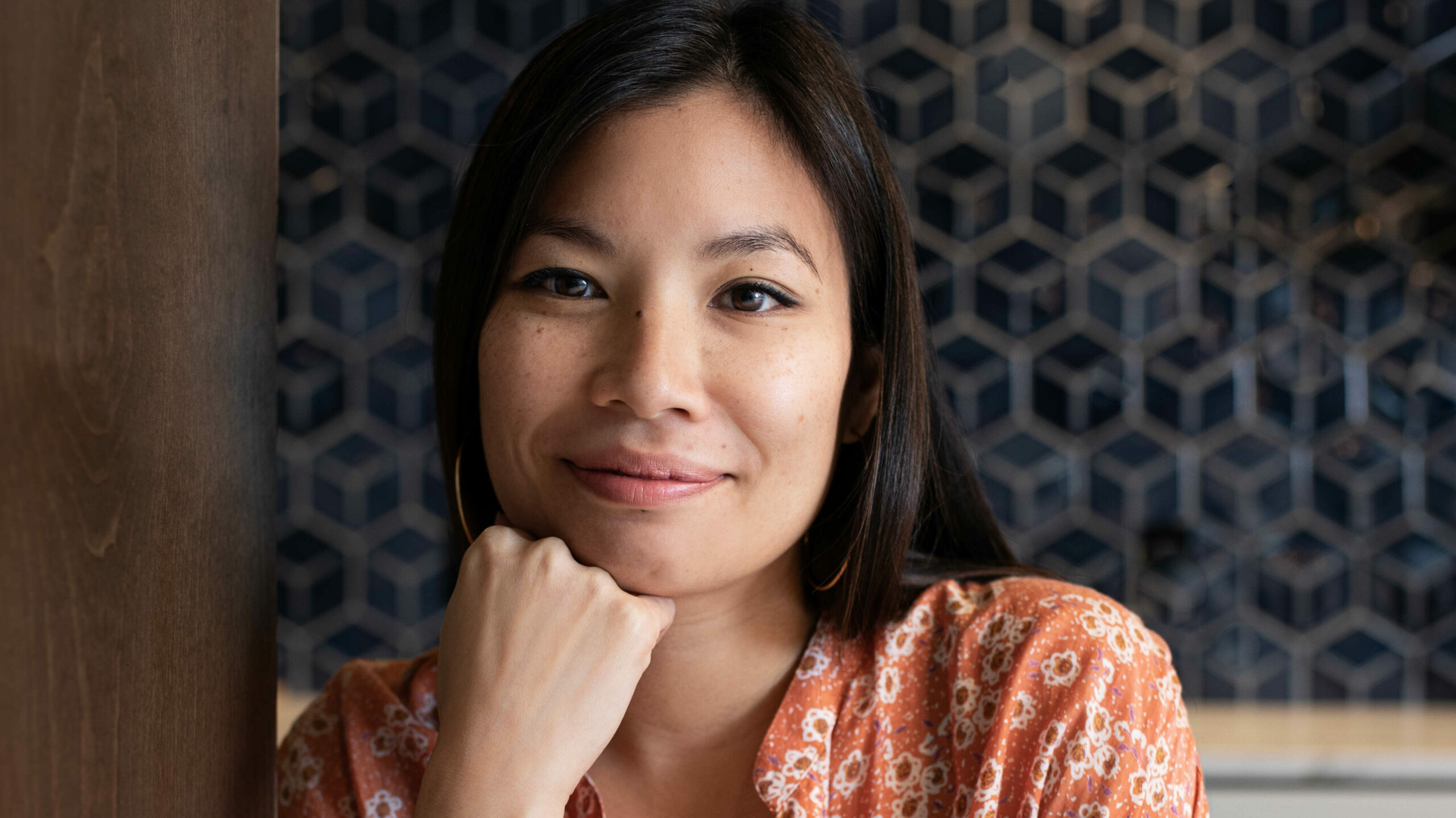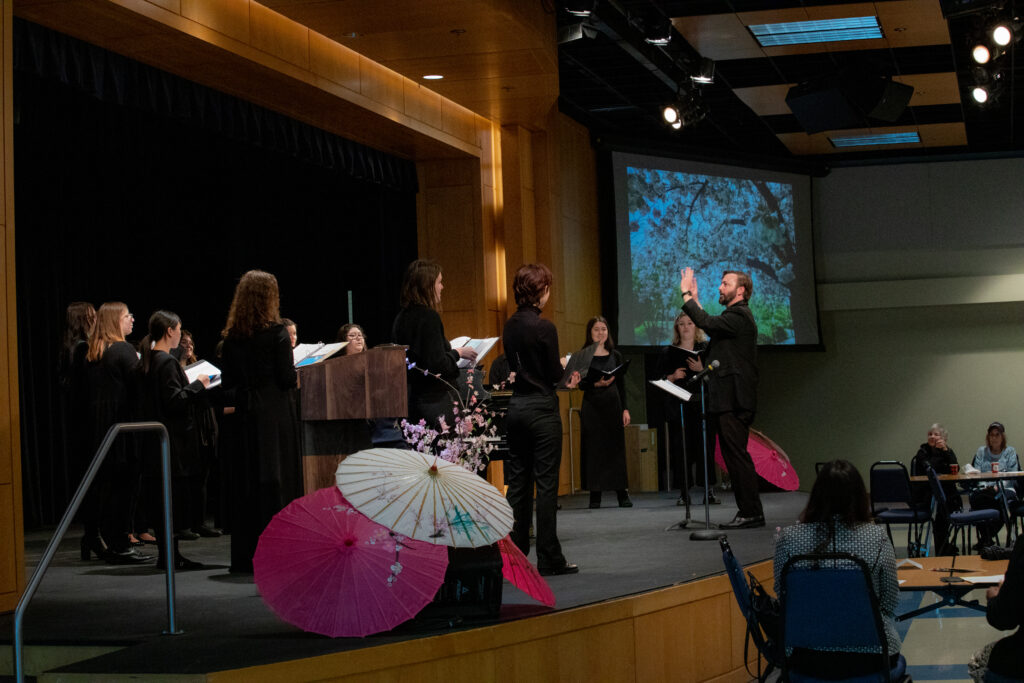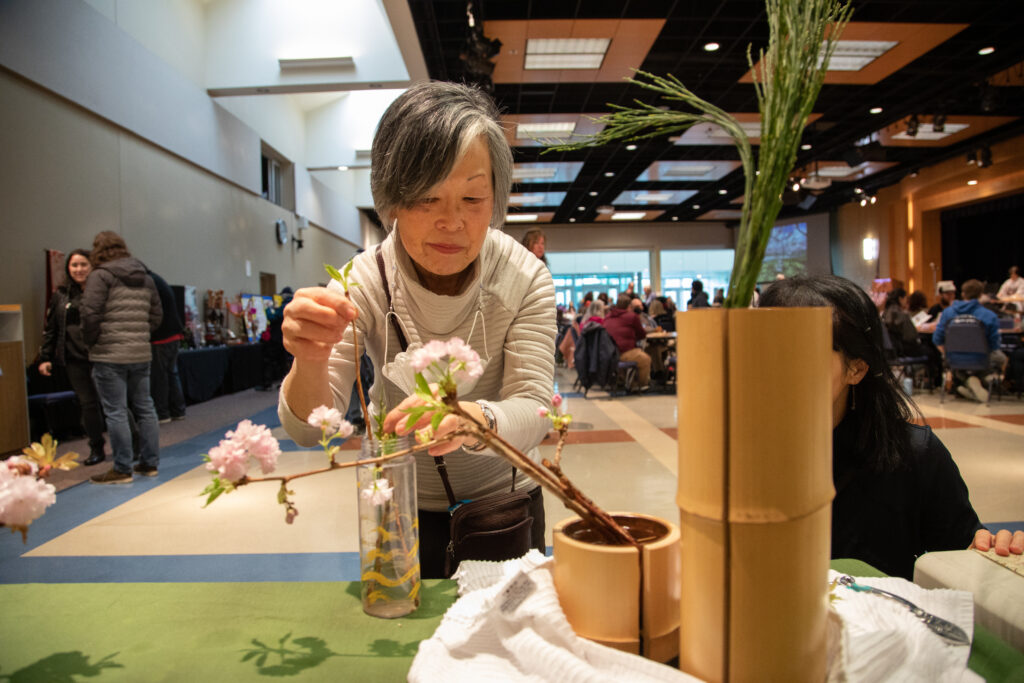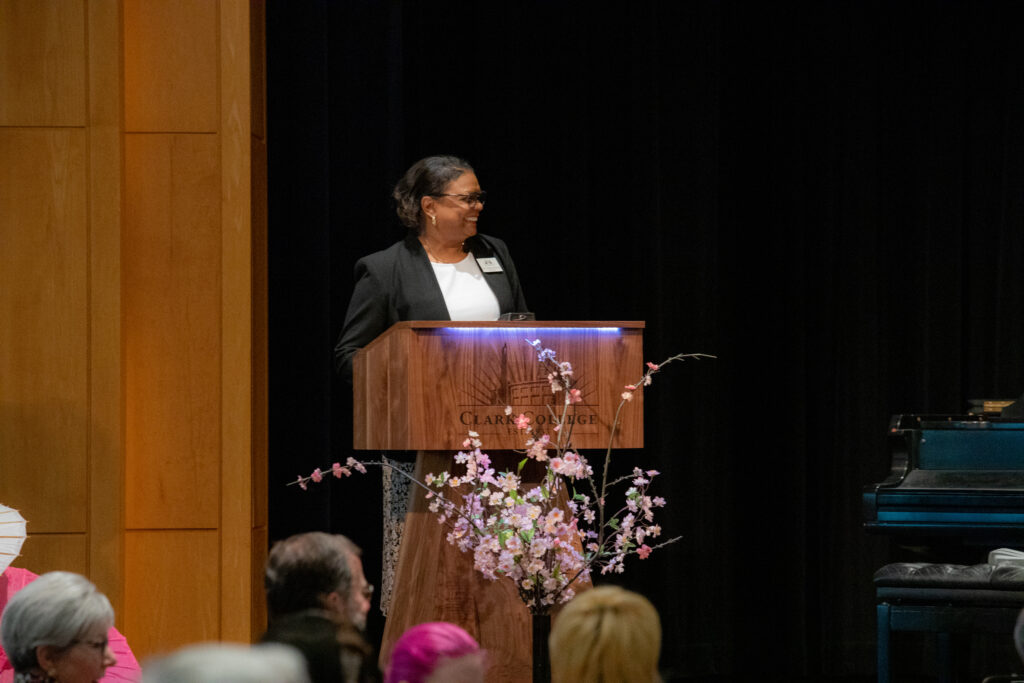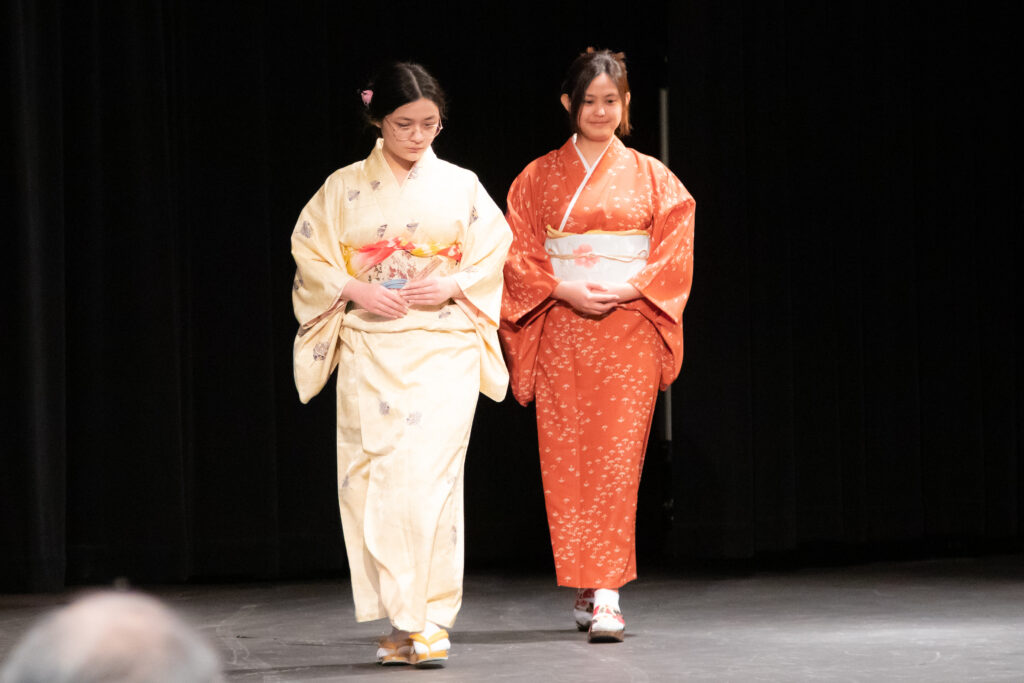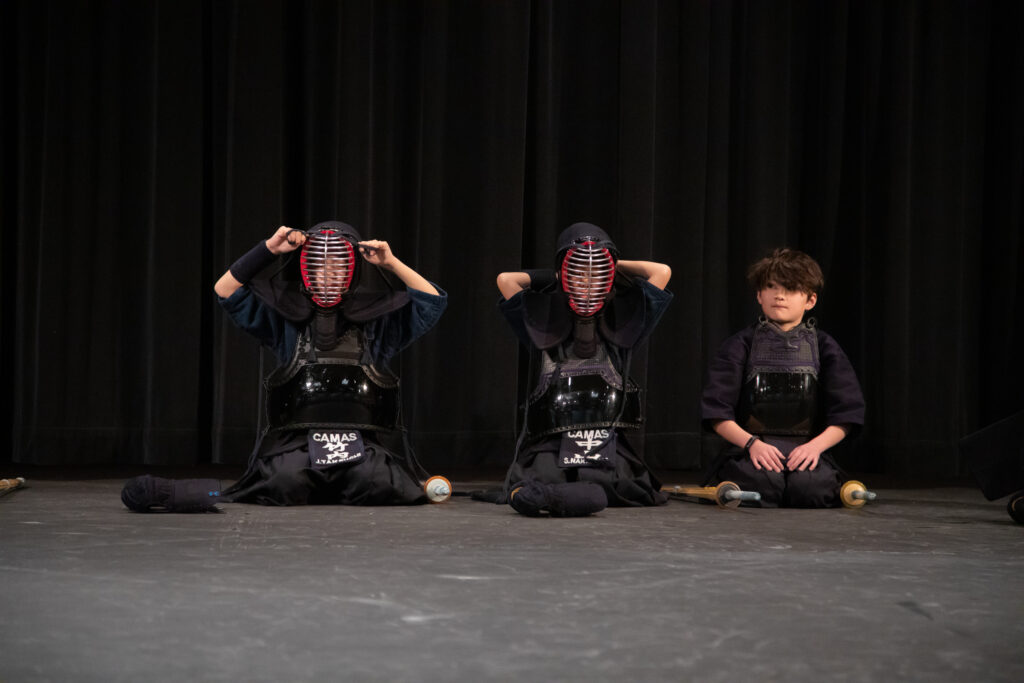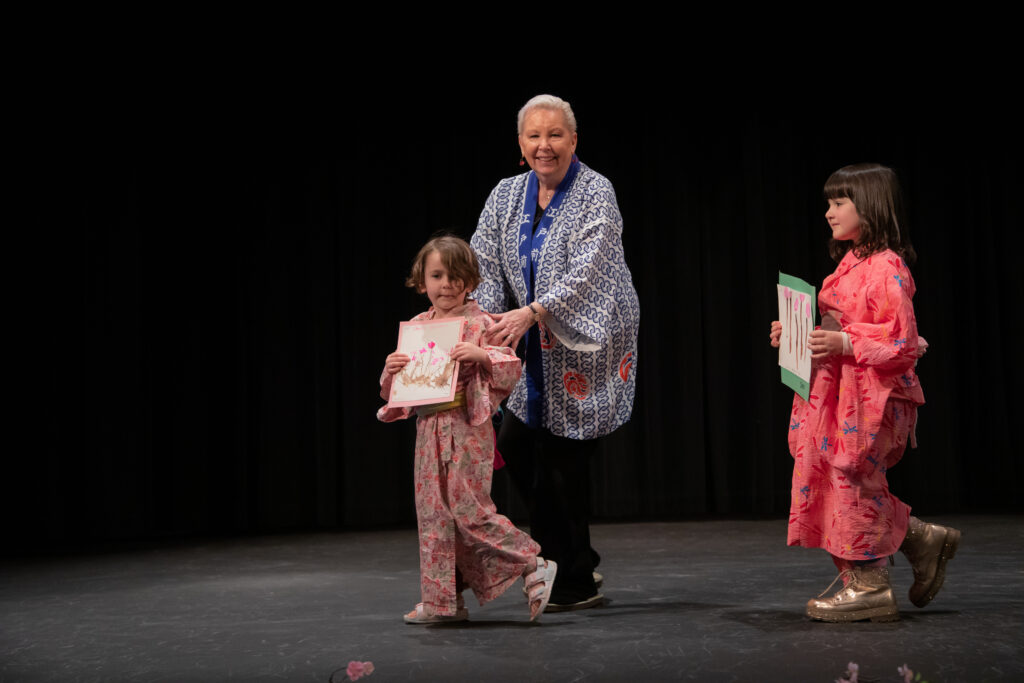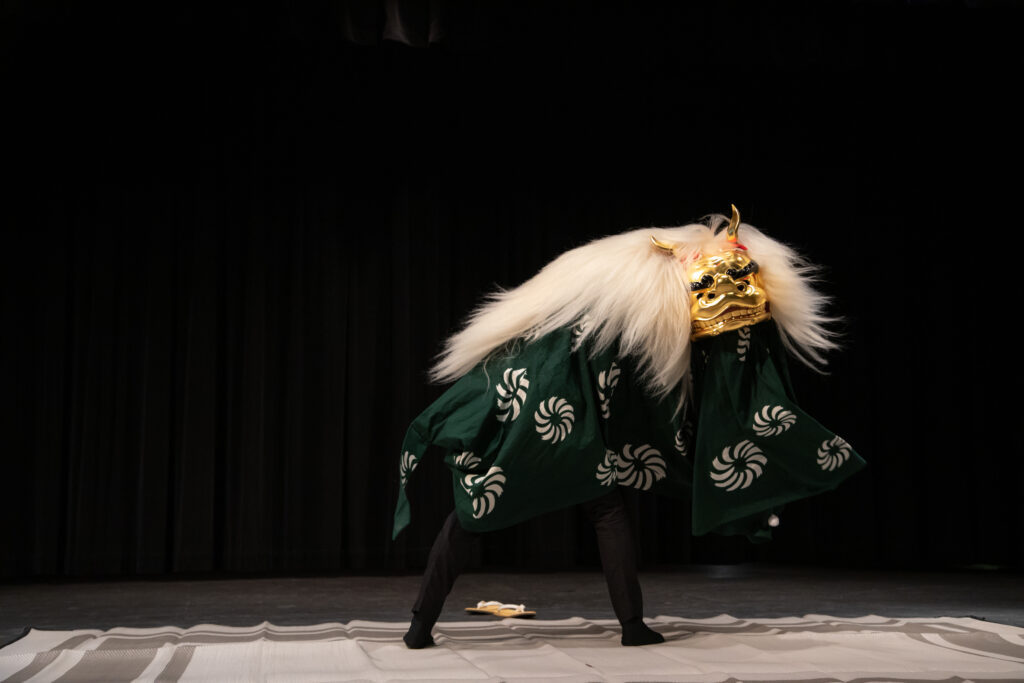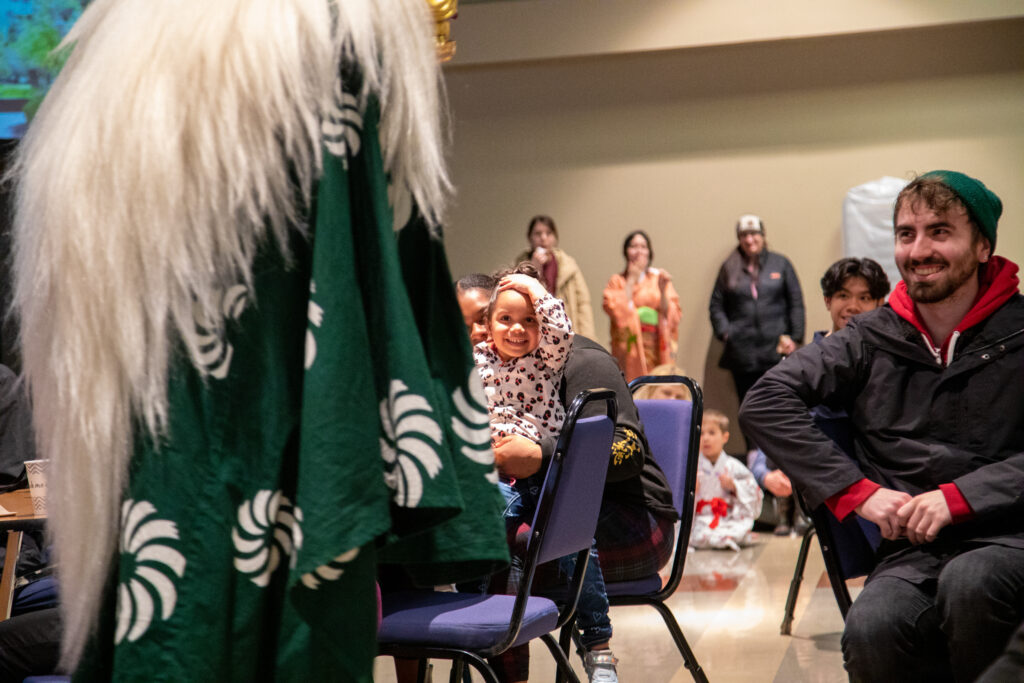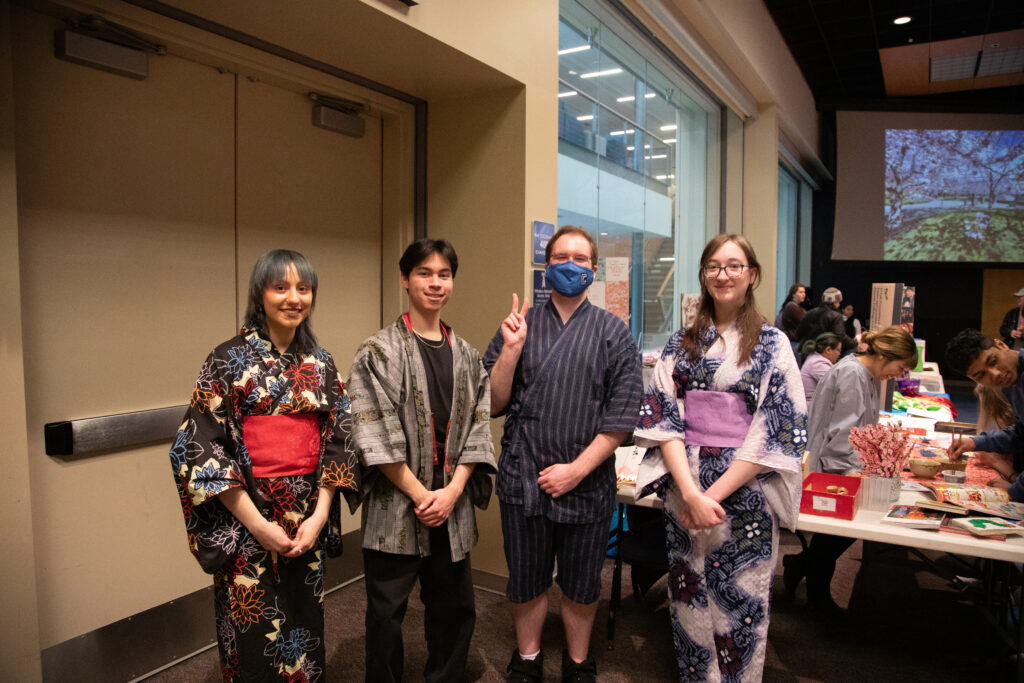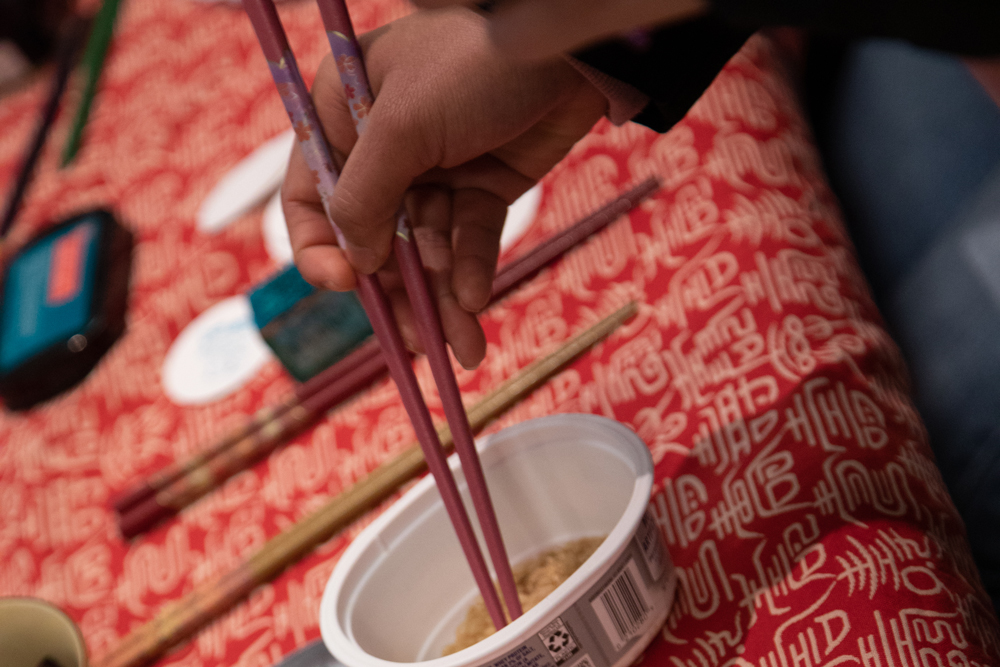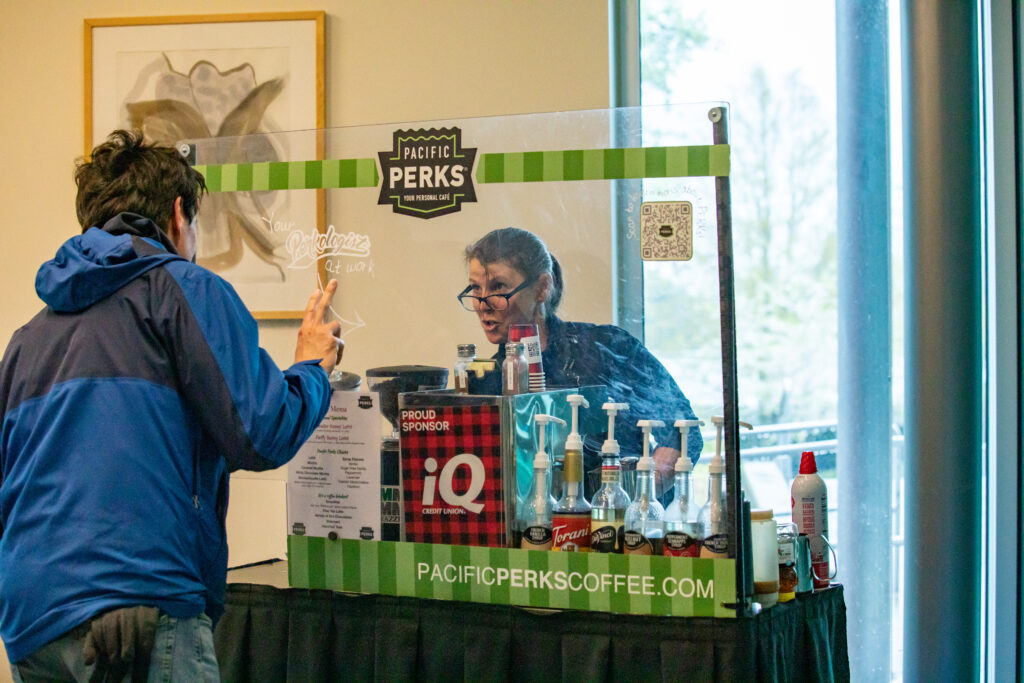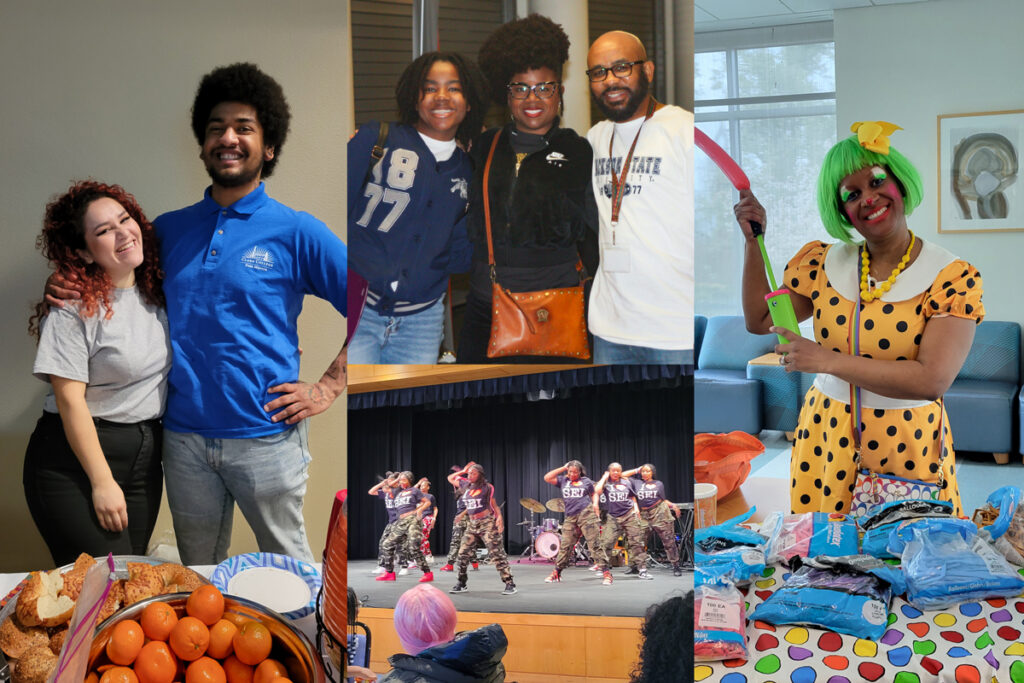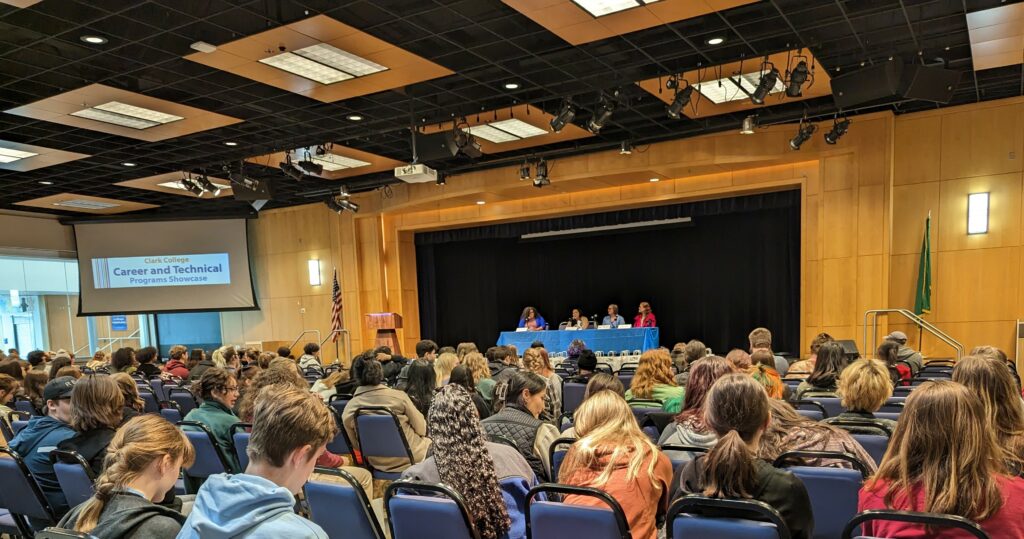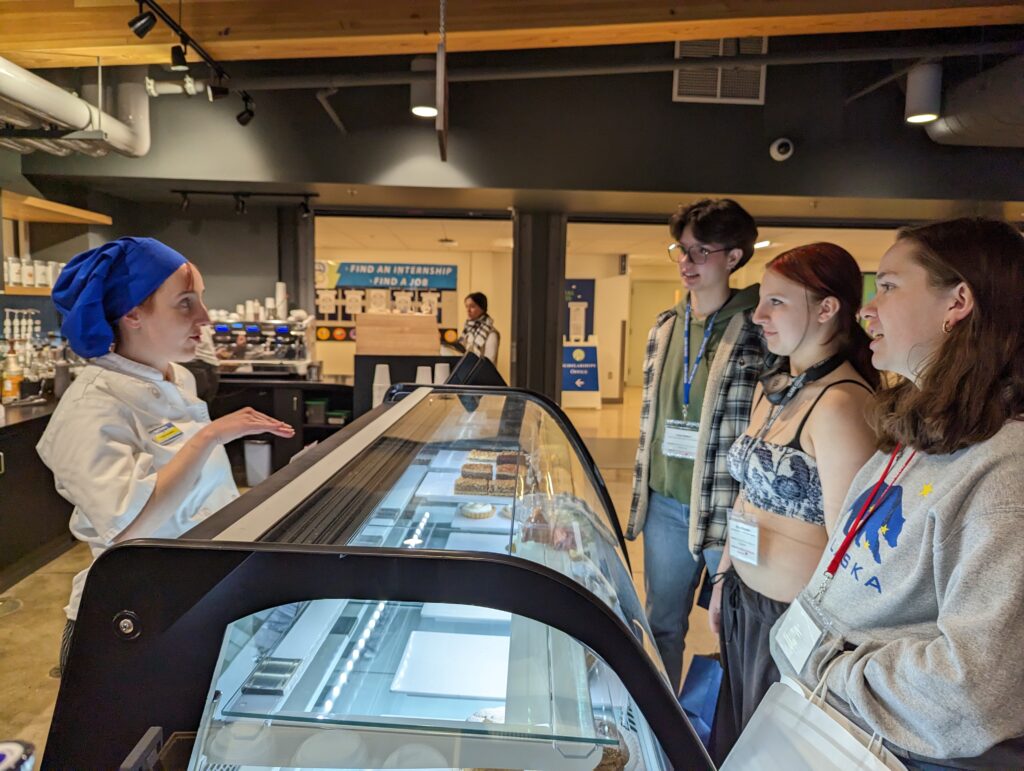Rocket Breaks Record
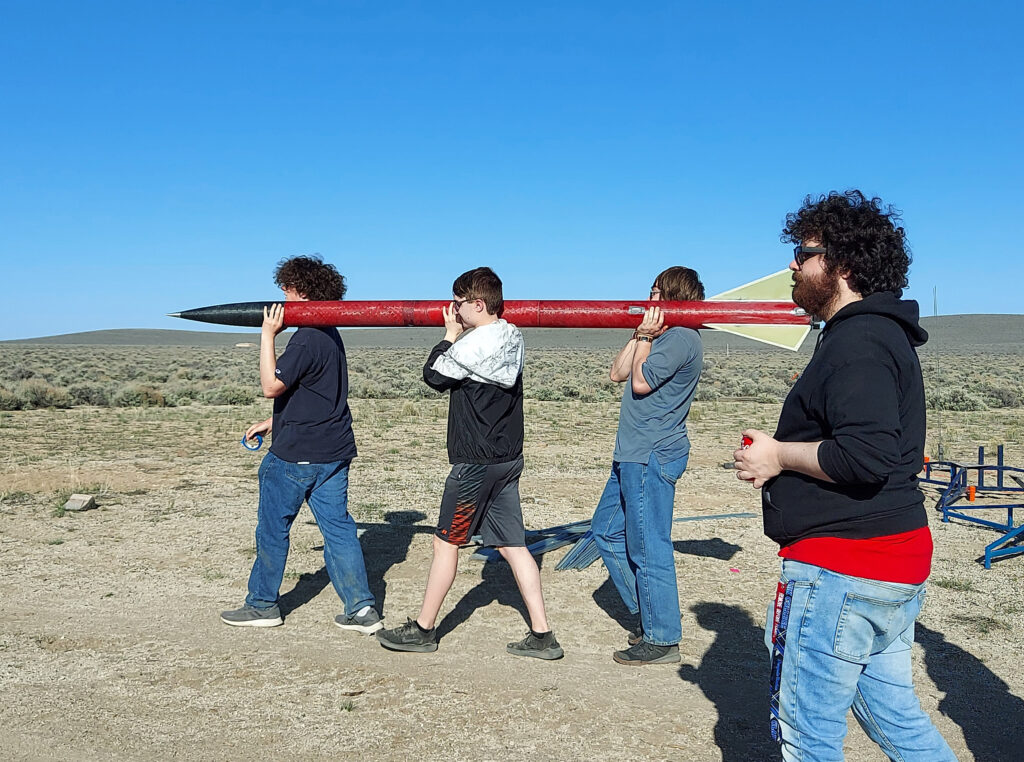
Penguins fly!
Or rather, one “Little Penguin” rocket flew on April 28, with the help of four Clark Aerospace students.
Every spring, the college’s Aerospace program travels to the scrappy sagebrush landscape of Brothers, Oregon, a premier launch site for high-altitude rocket projects, 40 miles east of Bend. Their mission: Launch the rockets they have built during the academic year.
Clark’s team arrived in two cars filled with rockets, tools, four students, and Xiunu “Sophie” Lin, physics professor and director of Clark’s Aerospace Program.
First, student Tyler Lawrence launched his rocket, and it was safely recovered. This achievement marked Tyler’s L1 High Power Rocket Certification.
Great outcome!
Next, the team launched their rocket, dubbed “Little Penguin,” which is 12 feet long, 5 inches in diameter and weighing about 45 pounds. According to the team’s simulations, the rocket with an M-1939 motor could potentially reach a high point of about 16,000 feet (called “apogee” in rocket lingo).
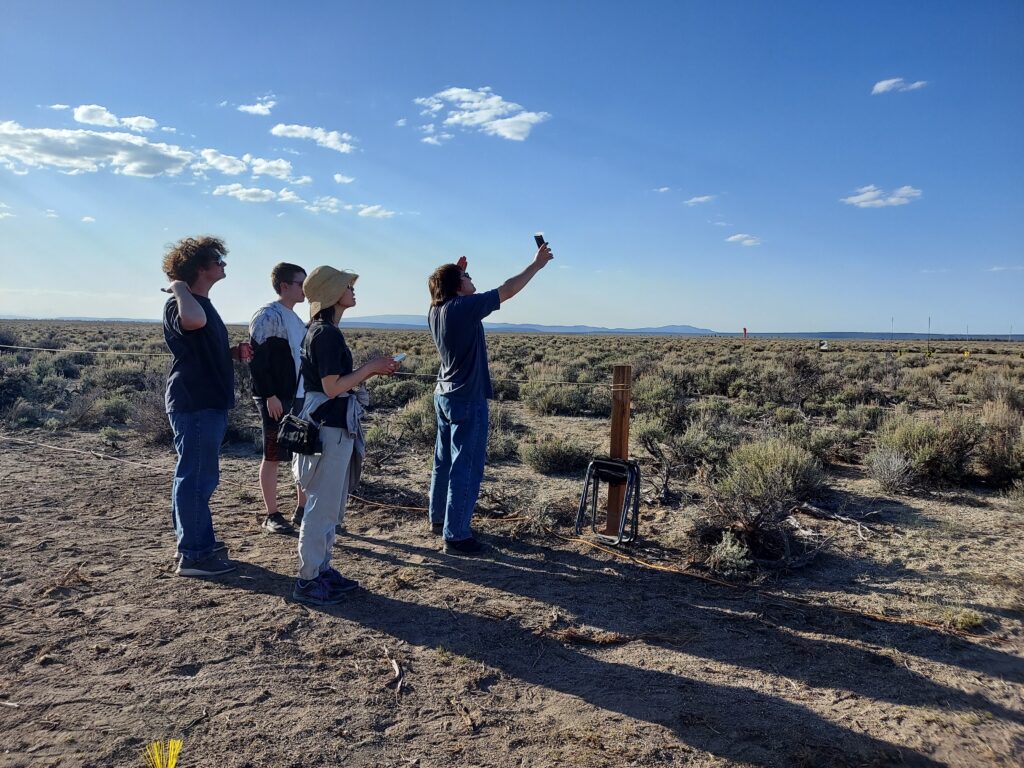
Little Penguin: All Systems Go!
Following a simple countdown, the team launched Little Penguin around 5 p.m. Wow, did that Little Penguin fly!
Professor Lin said, “It took off with tremendous power, producing a shock wave that could be felt 500 feet away from the launch site. The rocket soared straight into the blue sky with a beautiful straight line before disappearing.”
After a rocket is launched, it’s crucial for the team to follow its trajectory visually, so they later can find where it lands. When they lose sight of a rocket, the team uses a radio receiver to follow the signal of a radio tracker attached to the rocket’s nose cone.
But the signal they picked up was weak, indicating that the rocket must have drifted far from the launch site. The students, Professor Lin and the team’s mentor, Jack Caynon started driving, and stopping every few minutes to check the signals and direction before driving forward.
After driving for an hour or two, they eventually picked up a stronger signal. It came from a sagebrush-covered field behind a barbed wire fence. The sun had already set. The team crawled beneath the fence and walked uphill for a mile, where they found Little Penguin 11 miles northeast of the launch site.
Little Penguin broke Clark’s record
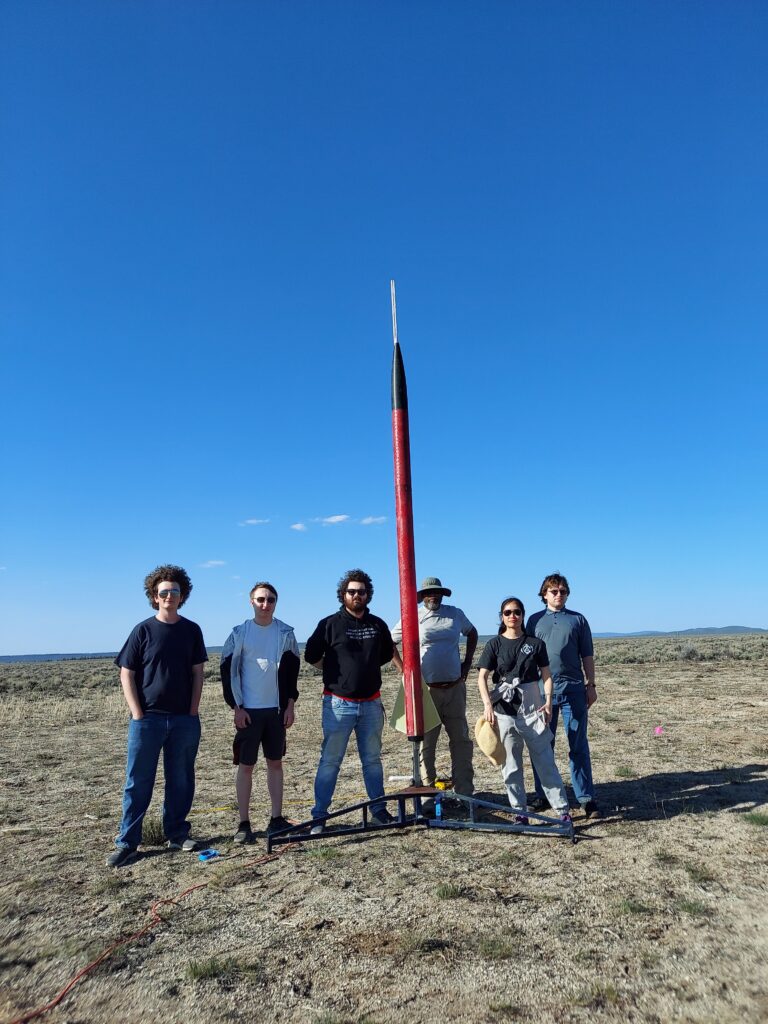
Keith Stansbury, the prior director of the college’s Aerospace program, said “an 11-mile recovery is a record for Clark. Eleven miles and we got it back! Phenomenal!”
“Recovering the rocket 11 miles from the launch site is almost a miracle,” said Professor Lin. “The recovery may not have been successful on our very first flight test, but we collected our first set of flight data to analyze and improve our rocket for future flights.”
The team examined the errant Little Penguin and discovered that an insufficient weld led to the bulkhead detaching from the fin cans, causing the rocket to drift in strong winds. The team plans to scrutinize the flight data to glean further insight.
Their next mission: competing at the SpacePort America Cup competition, the world’s largest intercollegiate rocket engineering conference and competition, held June 19-24 in Las Cruces, New Mexico.
“Our students learned good lessons from this flight,” said Professor Lin. “The perseverance they showed during the search of the rocket was impressive and amazing. As a team, we are determined to fail as many times as necessary before we can succeed at the SpacePort America Cup competition.”
Watch the Rocket Launch.
Photos by Carla Caynon, courtesy of the Rocket Club.
